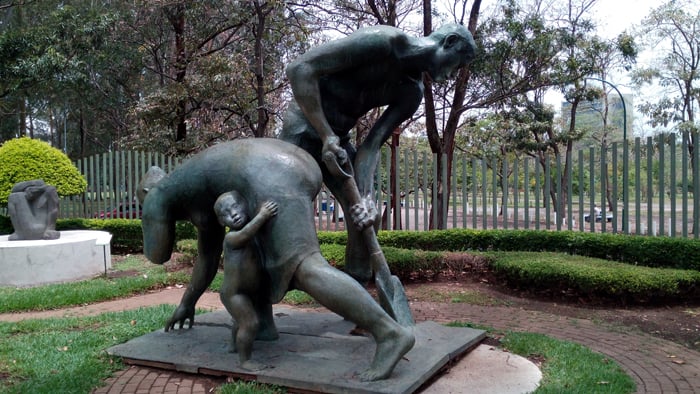Five years after government officials adopted the program “Constructing a Culture of Peace” to address domestic violence in the Northern Zone, the number of reported cases of such abuse has grown each year. Yet the program’s organizers are not discouraged. In fact, they say the rise signifies their efforts have empowered more victims to speak out.
Nuria Rodríguez, supervisor of social work in the Social Security System (Caja) for the Northern Huetar Region, said she and her colleagues decided to implement the plan after feeling frustrated by the painful domestic violence cases they see as social workers.
“We haven’t stopped treating and attending to the violence, but we have incorporated a component of prevention on the level of vulnerable populations like children and adolescents,” Rodríguez said. However, last year, the regional Caja treated 563 cases of violence, a number that has been growing.
“The increase is because people are more sensitive to the issue and feel empowered to denounce it,” she said. “There weren’t as many webs of support before, so the victims didn’t feel as protected.” The reported cases include psychological, sexual and physical abuse.
The program – which educates children about non-violent ways to deal with conflict, sets up support groups for fathers, broadcasts a weekly radio show, and collaborates with local churches and many other organizations – is spreading to other parts of the country.
María Sánchez, the director of social work for the Caja in the northwestern province of Guanacaste, said that they are considering implementing the same program, which seeks to prevent violence in general, not just domestic violence.
“It seems to me that the actions that we’re taking to reduce violence in Guanacaste are small right now,” she said, adding that while domestic violence is a problem in the region, it is no more prevalent than anywhere else in the country.
Yet a lack of a central register for domestic violence cases in the country means that meaningful data on the ill is fractured and hard to come by, according to Mayrene Sánchez, coordinator of Gender Violence Services, an office of the National Institute for Women (INAMU) in San José.
“We only have isolated information from institutions, which doesn’t reflect for us the scope of the problem,” Sánchez said. The result is a numbers game: A 2007 Caja study said government hospitals treated 6,000 domestic abuse cases between January 2006 and July 2007. Costa Rica’s courts heard almost 45,000 requests for protection from violence (restraining orders) last year.
And victims are becoming more educated. Almost 6,000 women sought information on domestic abuse at Sánchez´s governmentrun office last year. Sánchez and others try to piece together these numbers, jigsaw-style, without getting a concrete sense of the state of domestic violence in the country.
But this soon will change. By January, INAMU will be in charge of collecting data for a national register of abuse, and regional Caja offices and other involved organizations will have to report their findings to her organization. Even without a central register, awareness of the issue is on the rise, according to Sánchez and Rodríguez.
Trouble at Home
l Hospitals attended 6,000 domestic abuse cases between January 2006 and July 2007. l Costa Rica’s courts heard almost 45,000 requests for protective orders last year. l Almost 6,000 women last year sought information on domestic abuse at a government-run office in 2007.






